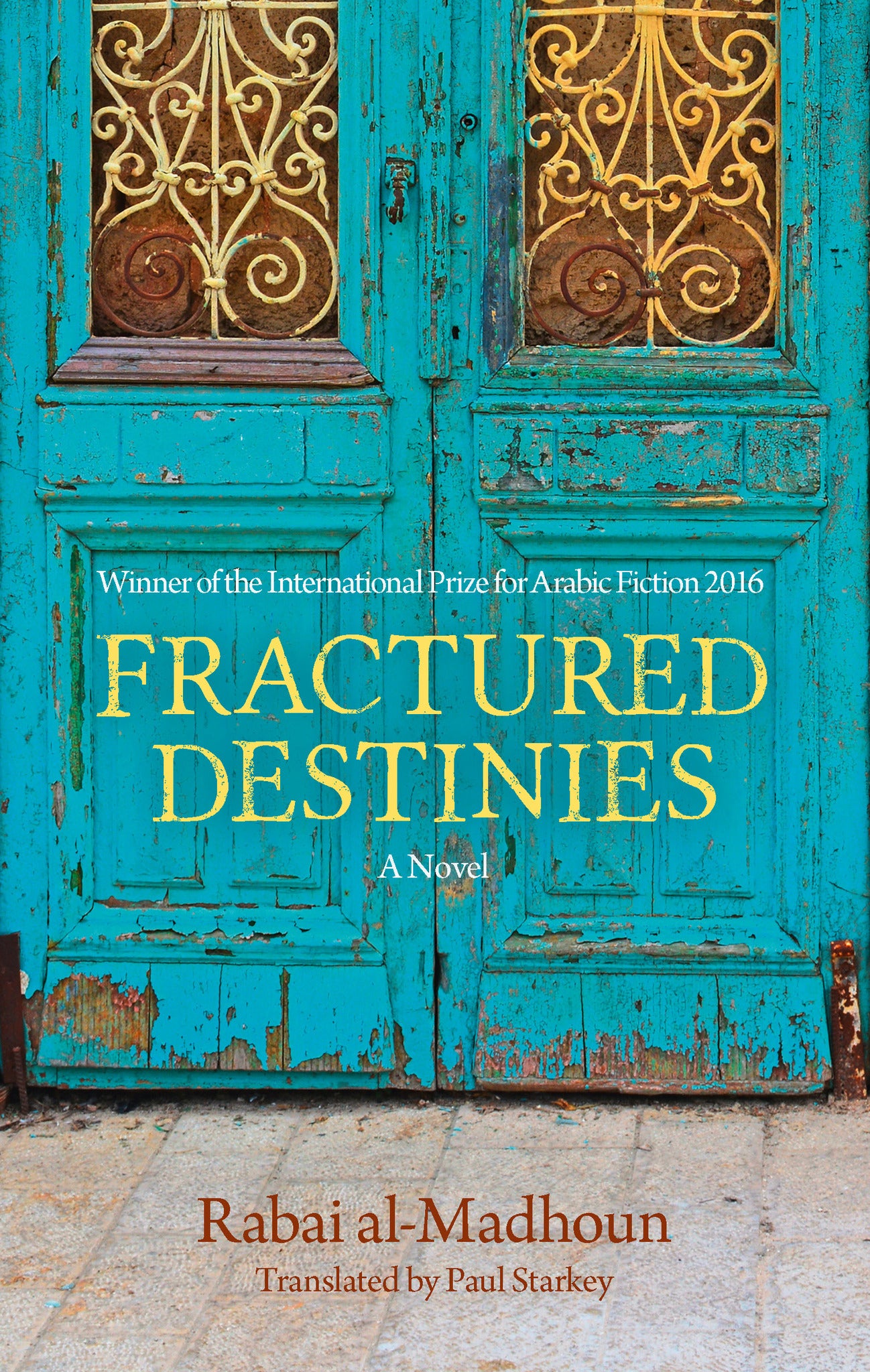We're sorry. An error has occurred
Please cancel or retry.
Fractured Destinies

Some error occured while loading the Quick View. Please close the Quick View and try reloading the page.
Couldn't load pickup availability
- Format:
-
01 April 2018

WINNER OF THE INTERNATIONAL PRIZE FOR ARABIC FICTION
ONE OF THE 50 MOST IMPORTANT ARABIC NOVELS OF THE 21ST CENTURY (THE NATIONAL)
Palestinian–Armenian Ivana eloped with a British doctor in the 1940s, in the midst of the Nakba, and emigrated to England. Over half a century later, her daughter Julie has been tasked with Ivana’s dying wish: to take her ashes back to their old home in Acre. She and her husband Walid leave London and embark on a journey to Palestine.
Written in four parts, each as a concerto movement, Rabai al-Madhoun’s pioneering new novel explores Palestinian exile, with all its complex loyalties and identities. Broad in scope and sweeping in its history, it lays bare the tragedy of everyday Palestinian life.


“Rabai al-Madhoun has been recognized as one of the leading voices of his generation” —Yasir Suleiman, University of Cambridge
“A heartbreaking look at loss, exile and homecoming. It’s a complex story, full of nostalgia and the anger of the betrayed.” —Manal Shakir, Arab News
“A novel exploring Palestinian life in exile and occupation” —The Guardian
“Fractured Destinies is as layered and nuanced as a concerto, weaving together multiple perspectives and storylines like perfectly complementary harmonies, and building in intensity as the magnitude of the questions faced by the different characters becomes clear. . . . this book puts human faces to an incredibly complex situation. . . . Highly recommended for anyone interested in historical fiction, the Middle East, or exploration of diverse cultural experiences, and one of the best books I have read this year.” —Jo Cahill, Beyond the Lamppost
“Rabai al-Madhoun invents a new fictional form in order to address the Palestinian issue, with questions of identity underpinned by a very human perspective on the struggle. This tragic, polyphonic novel borrows the symbol of the concerto, with its different movements, to represent the multiplicity of destinies. Destinies can be considered the complete Palestinian novel, travelling back to a time before the nakba in order to throw light on current difficulties faced by the Palestinian diaspora and the sense of displacement felt by those left behind.” —Amina Thiban, International Prize for Arabic Fiction Judge
“[A] new innovation in Palestinian writing. . . . [capturing] the eloquence of longing” —Faisal Darraj, Al-Ghad



